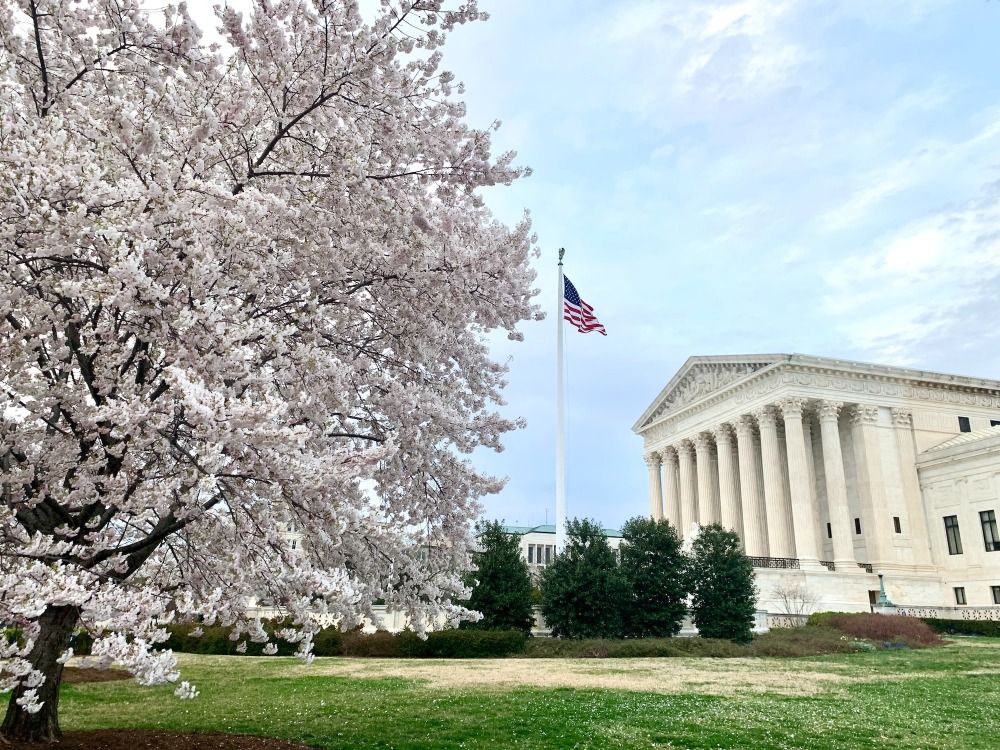U.S. Supreme Court Justice Louis Brandeis famously opined in 1927 that the remedy for harmful speech “is more speech, not enforced silence.” This declaration, called the “counter-speech doctrine” has been a widely accepted principle for almost 100 years.
But this doctrine is now being severely challenged on both sides of the Atlantic, especially when it comes to what is perceived to be harmful speech on social media and the Internet.
As has been discussed in past posts on this blog, there has been a recent flurry of government efforts in by the pollical left, right and middle - both the US and Europe - to address “disinformation” and other forms of what is deemed harmful speech on social media sites. In the U.S., the Biden Administration’s efforts to convince large social media companies to take down what it perceives as particularly harmful disinformation is currently pending before the Supreme Court. There also has been a recent trend by Republican dominated states to place restrictions on social media companies’ ability to self-police information posted on their sites, which platforms argue infringes on their free speech rights. Very recently, litigation has been filed against Meta by numerous red and blue states alleging that it has engaged in conduct harmful to children, including failing to shield children from certain types of speech.
And in Europe, the recently enacted Digital Services Act (DSA) is complex and comprehensive legislation designed to mitigate or prevent the posting of disinformation and other speech deemed illegal, such as hate speech.
Traditionally, free speech has been very high on the list of fundamental/ constitutional rights in both the U.S. and Europe, enshrined in both the U.S. Constitution and the Charter of Fundamental Rights of the European Union. Only very narrow exceptions have been recognized legally – such as for fraud, defamation, perjury, and child pornography. But, at least in the U.S., there has never been a legal prohibition against lying, misleading or misinforming unless it is under oath, for financial gain, or to damage someone’s reputation. In parts of Europe there have been prohibitions against hate speech, but even this is not illegal in the U.S.
But is this about to change? It seems that the concern about disinformation and other harmful speech on the Internet has hit a fever pitch, even a frenzy in some quarters. Even if there were consensus that disinformation and other speech can be harmful to society as a whole, does this warrant governmental intervention, especially when disinformation is hard (or impossible) to define, and could be argued to be largely a subjective judgment in many cases. Are Western societies willing to cede such authority to their governments? To what extent will the courts allow these efforts to regulate of speech over the Internet?
There may something of a prescient warning by Justice Brandeis - foreseeing the information age – in the full text of his famous expression of the counter-speech doctrine:
"If there be time to expose through discussion, the falsehoods and fallacious, to avert the evil by the process of education, the remedy to be applied is more speech, not enforced silence."
In the age of the Internet, with lightning-fast dissemination of information throughout the whole world, could it be that there not be time to expose falsehoods and fallacious on the Internet before such does irreparable damage? In other words, the important question that society and the courts will need to grapple with is whether the harm caused by our new technologies justifies modification or elimination of the counter-speech doctrine on the basis that it is archaic. I, for one, am not willing to advocate for such a radical departure from a fundamental principle of free speech, even to battle significant harm caused by widely disseminated disinformation. We should at least be discussing these important questions openly and honestly, and not let the demagogues on the right and left control the debate so that only speech on their respective ends of the spectrum becomes worthy of full protection.

Member discussion: